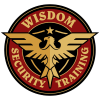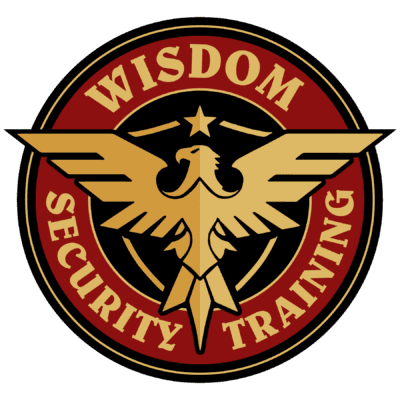
You will need to learn Ten Codes as part of your Ontario security training. These codes are used by Professional Security Guards and are outlined by the APCO. Also, you’ll need to know the Powers of Arrest or Citizen’s Arrest. These codes are part of our security guard training Mississauga courses.
What are the Ten Codes?
Police codes are radio codes that police use to inform the public about criminal activity. These codes can be used to protect your privacy if you are listening to the frequency. Radio communications and radio codes are also used in security professionals’ communications. These codes start with the number 10 and are also known as Ten Codes.
Why Ten Codes?
Ten Codes allow you to communicate clearly and discreetly while keeping information private. While it is important to share sensitive information about events, while maintaining privacy and security, it is also important to keep the details secret. It is recommended that all Security Guard license Mississauga holders memorize the 10 most frequently used codes.
What are the 10 most used codes?
Following are the commonly used 10 codes:
10-0 Use Caution
10-1 Signal Weak
10-2 Signal Good
10-3 Stop Transmitting
10-4 means message received.
Ten codes can also be used to describe events that could put the public at risk.
These include:
10-31 Crime in Progress
10-32 Person with Gun
10-33 Emergencies – All Units Stand By
10-34 Riot
You are now aware of the importance of knowing the 10 Codes. It is important to also learn about Powers of Arrest and when and how you can arrest someone on the job. Can you arrest someone if a situation arises while you wait for emergency staff?
Powers of Arrest
What powers of arrest do security guards have?
The Criminal Code of Canada Section 494 regulates when a member of the public can make an arrest. This section grants individuals the power to arrest under certain circumstances, known as the Powers of the arrest. For the purpose of determining Powers of Arrest, security personnel is considered members of the public and not police officers. Therefore, they must adhere to the Canadian Charter of Rights and Freedoms. Security guard training Mississauga course covers all these topics to ensure success in a security career.
In what circumstances can a security guard detain someone without their consent?
The Canadian Charter of Rights and Freedoms states that an individual cannot be taken from his/her liberty if it is done in violation of the rights of others. When there is a breach of the peace, powers of arrest can be used. This allows members of the public to arrest or prevent a person from committing a breach, also known as a citizen’s arrest, in order to stop a disturbance from continuing and then release the individual into the custody of a peace officer. This is a protection for those who assist police in situations that could be considered a riot. In any other circumstance, it should not be relied on.
While on duty, security guards can deal with criminal acts. You will be able to distinguish between summary, indictable, and dual/hybrid offenses, which will help you make informed decisions and keep you physically and legally safe.
The Criminal Code of Canada distinguishes three types of offenses. They are classified according to the severity and nature of the crime. Security Guards may find this a problem as it could affect their legal ability to arrest an accused and may cause them to be held accountable.
Summary Conviction offenses are the most serious crimes in the Criminal Code. Individuals are subject to a maximum penalty of up to 6 months imprisonment and a $5000.00 fine, except in exceptional circumstances that involve repeat offenders.
The sentences are usually less severe than the maximum penalty, but Summary Conviction offenses are the most serious. Summary Conviction does not typically apply to crimes of a sexual nature, violence, or the possession of large amounts of drugs or weapons.
The most serious offenses, such as murder, aggravated sexual assault, kidnapping, and robbery, are those that can be punished by Indictment. These offenses can result in severe penalties, including long-term imprisonment and sometimes a mandatory minimum sentence.
The last two terms, Hybrid or Dual Procedure offenses (both terms can be used which is a great query on the Security Guard Exam), are those that can have different levels of severity. In these cases, the Crown has the option to proceed under Indictment or Summary Conviction depending on the facts.
Two people are charged with theft, for example. One individual stole $5.00 worth of items, while the other took $4900.00 worth of property. Both were technically charged with the same crime, CCC S.334 (b) Theft under $5000.00.
The Crown will most likely charge the candy bar thief a Summary Conviction Offence and the other with an Indictable Offense if they proceed with charges. If the Crown applies another method, all Dual Procedure cases will be considered to involve an Indictment.
What do I need to know to obtain my Security Guard License?
Security testing in Ontario requires that all exam takers have a basic knowledge of Section 494 of the Criminal Code. This section outlines Powers of arrest and 10 Codes. This knowledge will help you pass the exam to apply for your Security Guard license Mississauga. It can also protect you and your family members while you are on the job.
It is crucial to ensure that you have the correct training in security and how to use force, communication, and radio 10 codes. Register for the Wisdom Security Training courses today if you’re interested in getting a security guard license in Mississauga. These courses will ensure that you are safe and successful in the security industry.


